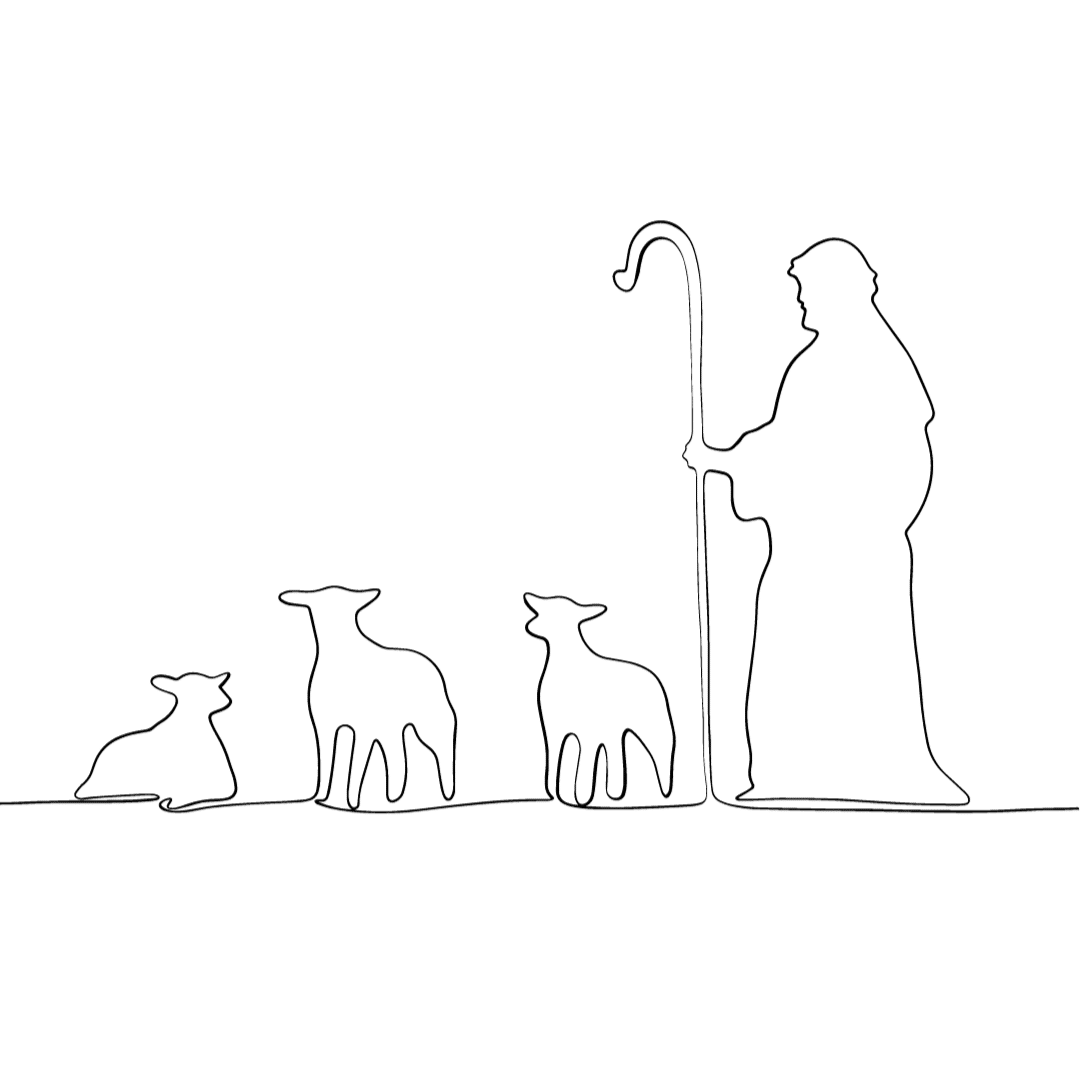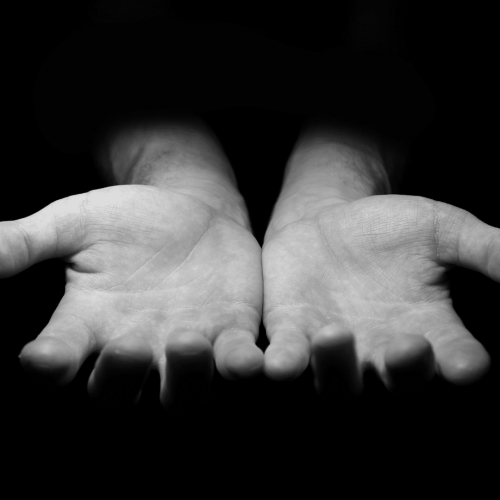Psalm 23 is one of the most well-known and beloved psalms in the Bible. David expresses his trust in God’s provision and protection in a way that most in his culture would understand. For most of us to gain similar appreciation, learning more about shepherds and sheep will help, thus the aim of this article. We do grasp sheep metaphors such as: black sheep (bad boy), count sheep (sleeping aid), sheepish (shy), people follow like sheep (blindly follow), wolf in sheep’s clothing (look harmless, but really very dangerous), lost sheep (a clueless person), a shepherd and his flock (people following some individual), and a lamb to the slaughter (defenseless, innocent person punished).
Shepherding was a common profession in ancient Israel, and it played an important role in the economy and society. Shepherds were highly valued and respected because of their character and skills. Their job required knowledge and wisdom about such things as husbandry, agriculture, meteorology, astronomy, medicine, defense against wild animals, year-round outdoor living, and of course herding. They were appreciated for their bravery, hard work, and dedication. They were conscientious, tough men, yet very nurturing. Part of the training for young boys was to spend extended time with a shepherd. Shepherding was also an important part of the economy as sheep were raised for their wool, meat, and milk. In addition, sacrificing lambs was an integral part of the old covenant. Abel, Abraham, Isaac, Jacob, Moses, and David were all shepherds.
Sheep are among the few animals that require human involvement in order to survive. Sheep need a shepherd for several reasons:
- Sheep are prey animals and are thus vulnerable to attack
from wolves, lions, bears, coyotes, etc. They lack self-defense
skills; therefore, shepherds like David, who protected his
sheep from the lion and bear, are needed. - Sheep are herd animals that need guidance and direction to
find food, water, and shelter. A shepherd guides the flock to
safe and productive areas for grazing and water sources. - The shepherd monitors the health of the flock and provides
medical care when necessary, such as medication or treating
wounds. - Shepherds manage the flock’s breeding program and ensure
that the best animals are selected for breeding. This improves the health and productivity of the flock over time. - Sheep often get separated from the flock, especially if they
are in an unfamiliar environment or startled or frightened
by something. If lost, they have difficulty finding their way
back because they lack a strong sense of direction (no GPS),
so again, they need the shepherd’s help. - Sheep grow between 2 to 30 pounds of wool and need to be
sheared, or problems will occur. Their thick coats of wool
keep them warm in cold weather, but in warm weather,
they can cause them to overheat, leading to heat exhaustion
or even death. Sheep that are not shorn can be more susceptible to parasites such as lice, ticks, and flies. Moisture
can become trapped in the wool, creating an environment
conducive to the growth of fungi. They can become immobilized, leading to starvation or dehydration.
Hopefully, this information will help us better understand the comparison of Yahweh’s relationship with His people set forth in Psalm 23. Sheep are very dependent upon a shepherd just as we are with God. The first step in having a relationship with God is accepting the reality that we need His help. This mindset is called humility. The Scriptures refer to us as sheep, not lions. We need God’s help, or like sheep, we will suffer. Praise God, for He is our shepherd.
Psalm 23:1. Yahweh is my shepherd; I shall not
want.
Yahweh will guide, direct, feed, heal, and protect His own. God is with us as our provider and protector so that we shall not want.
2. He makes me lie down in green pastures, he leads
me beside quiet waters,
God provides physical and spiritual substance, refreshment, and rest.
3. He restores my soul; He guides me in the paths of
righteousness for His name’s sake.
When we face difficult situations or sin causes us to lose our way, God is there to restore us. The phrase “for Your name’s sake” is used to emphasize that God restores and guides His followers, not just for their own benefit, but also for the sake of His own reputation and honor. It is a reminder that all of our actions and experiences should ultimately be centered on honoring and glorifying God.
Following are similar verses in Psalms:
For Your name’s sake, O Yahweh, pardon my iniquity, for it is great. (Psalm 25:11)
For You are my rock and my fortress; for Your name’s sake You will lead me and guide me. (Psalm 31:3)
Help us, O God of our salvation, for the glory of Your name; and deliver us and forgive our sins for Your name’s sake. (Psalm 79:9)
But You, O GOD, the Lord, deal kindly with me for Your name’s sake; because Your lovingkindness is good, deliver me; (Psalm 109:21)
I am writing to you, little children, because your sins have been forgiven you for His name’s sake. (1 John 2:12)
Psalm 23:4. Even though I walk through the valley of the shadow of death, I fear no evil, for You are with me; Your rod and Your staff, they comfort me.
Life can be difficult at times. When we walk through the darkest valley, which represents times of trial and hardship, God is with
us. David acknowledges that he does not need to fear because God is with him, and God’s presence and guidance bring comfort and reassurance. The rod represents the power and defense of the Lord.
The rod was a strong wooden pole that was used as a weapon to fend off wild creatures. The rod was apparently employed by young David as he told King Saul about incidents in which he kept his father’s sheep from the lion and bear.
The staff was a long, thin pole that was frequently hooked at the end and was primarily used to guide the flock. Sheep are infamous for straying, and once they are not under the shepherd’s close supervision, they can get into all kinds of problems.
The shepherd used his staff to keep his flock close to him and out of harm’s way. The shepherd would wrap the curved end of the staff around the sheep’s neck and pull it back to safety if it became stuck in a dangerous spot.
5. You prepare a table before me in the presence of my enemies. You anoint my head with oil; my cup overflows.
God prepares a table for us, even in the presence of our enemies. This represents God’s provision and care, even in difficult circumstances. God anoints us with oil, which is a symbol of blessing and honor. The cup overflows, which is a metaphor for God’s abundant blessings and provision.
6. Surely goodness and lovingkindness will follow me all the days of my life, and I will dwell in the house of Yahweh forever.
David concludes by expressing his confidence that God’s goodness and lovingkindnesses will follow him all the days of his life, thereby he will continue to experience God’s care, provision, and protection. The psalm ends with the hope of dwelling in the house of Yahweh forever, eternal life in God’s presence.




0 Comments